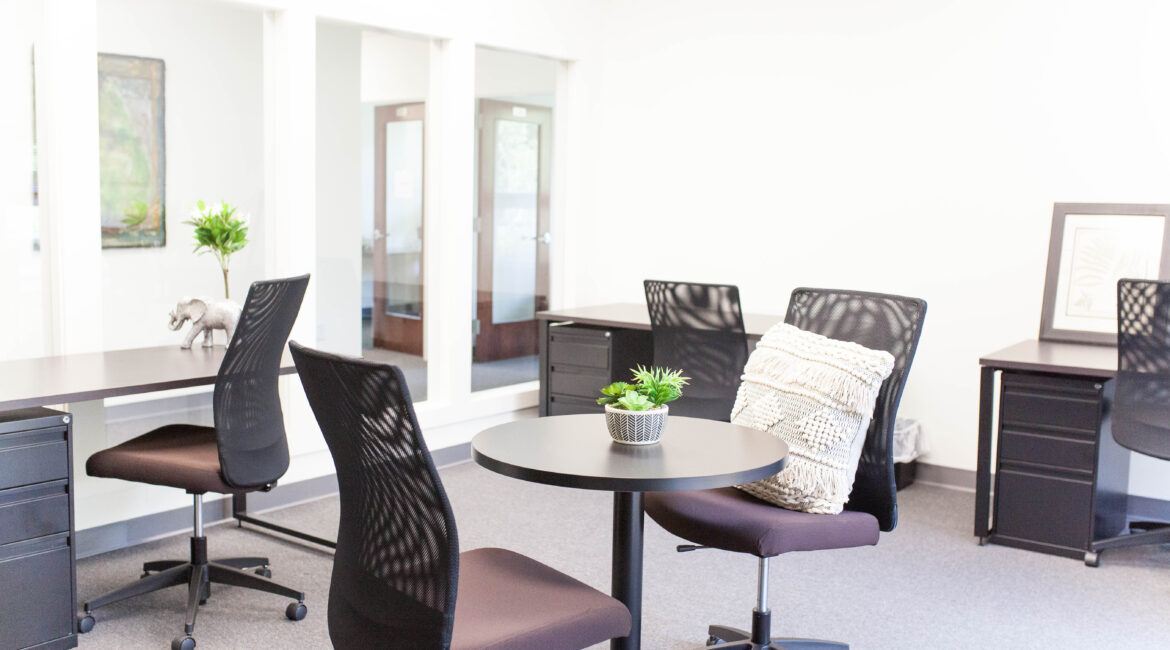As a new entrepreneur, one of the first decisions you make is choosing where you’re going to work. In the United States, over 50 percent of startup businesses operate out of the home. This simply means you work from a designated space within your home—a converted bedroom or other area—or like other entrepreneurs, you set up shop at the local Starbucks, Panera Bread, or other cafés in your area.
While these two options may not seem problematic, there are benefits to choosing co-working spaces over home offices and cafes. And with 20 percent of small businesses failing within the first year, it’s important that you find a location where you have the ability to have dedicated workspace, a place to focus, and designated area for holding meetings.
We’ll look at all three options and hopefully in the end, you’ll get a better sense as to why entrepreneurs benefit most from designated space at co-working sites.
How Coffee shops & Cafes Can Be Limiting to Entrepreneurs
At first, working from a café can be invigorating, especially if you’re the type that enjoys having the presence of people around. In time, working from cafes can become distracting and begin to negatively impact your small business.
One of the challenges with working in coffee shops is the pressure to adhere to the proper etiquette each day. You’re patronizing a business, and in some instances prohibiting paying customers from having available seating. The one cup of coffee you purchased for the eight hours you spent at the coffee shop. There’s a code of etiquette for business campers (did you know?) and once you do the math, that trip to work in the noisy coffee shop starts to add up.
You also lose the option of taking extended breaks. If you want to grab lunch, you have to pack up your bag and leave with the hope that space will be available when you get back. In the even that it is not, you lose time—and you know what they say, “Time is money.”
While conducting meetings in coffee shops is socially acceptable, when you need to have a client’s undivided attention, or speak through a presentation, coffee shops are difficult meeting rooms.
Why Home Offices Can Be Limiting to Entrepreneurs
At first, a home office works out well. You have a quiet space to focus on doing work and growing your business. However, in time, some entrepreneurs come to realize that distractions creep in—those unfinished dishes, that errand you want to run, television breaks, small children interrupting (remember BBC Dad?). For others, it can get lonely. You can go for days on end without seeing people. Another drawback is most home offices are not zoned for clients. This means you have to meet clients virtually, at their office, or at an agreed upon location. A final caveat to home office working the difficulty of separating home and work life.
Why Co-Working Is the Perfect Solution for Entrepreneurs
Unlike home and coffee shops and cafes, co-working is a dedicated working environment, and one you have complete control over. You have the option of working in shared spaces with other like-minded entrepreneurs, or you can rent your own keyed office to work from. Many co-working spaces provide the coffee, tea, and snacks for free—or in some cases an in-kind donation is encouraged—and you can rent meeting rooms. One of the best benefits is you always have a place. How many times have you driven to your local café or coffee shop only to find it loud and crowded with no place to sit?
Co-working spaces are also quiet. In Cal Newport’s bestselling book, “Deep Work,” he argues that many entrepreneurs don’t achieve high levels of success because the amount of distractions around them—be it family interference or other attention-seekers from a home office, or noisy in a coffee shop. He argues that deep work, one to three hours of undistracted work, builds confidence and increases the probability of success.
You’ll save money over the long term at a co-working space. Those daily coffees and lunches add up over time. When you rent co-working space that money becomes an investment into your business, which gives you the opportunity to you become one of those who beats the odds.

